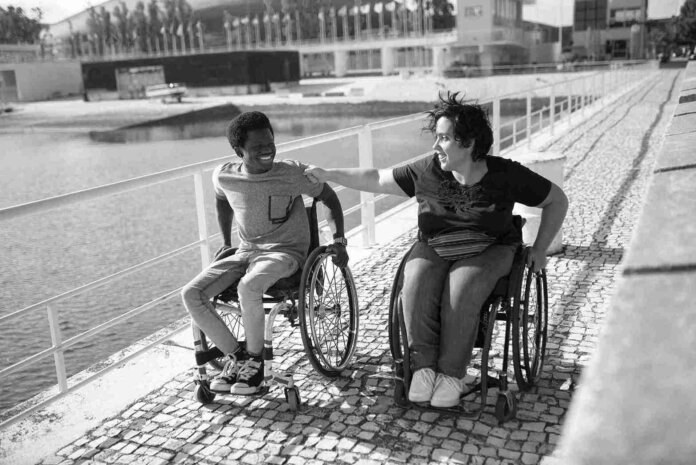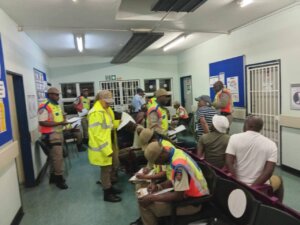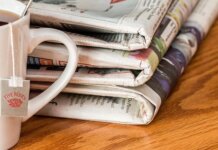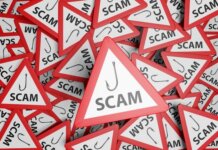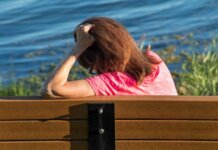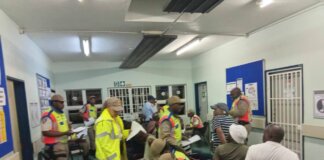A few years ago, I went to bed tired and exhausted from the day, It was like any other day: busy in the office, helping my sons with homework and assignments, cooking supper for the family. I thought nothing of the aches and pains I’d been experiencing, just chalked it up to exhaustion, or maybe just getting old.
Sometime before that, I was at a fundraiser dance. If you’re coloured and reading this, you’ll know exactly what I mean when I say that a dance is our go-to event for raising money, be it for a community cause, awareness campaign, or sometimes just to let loose and enjoy some good old Dr. Victor or Brenda Fassie. There’s always some langarm dancing too, where we show off our ballroom flair. I loved those nights. I had a friend, no matter where in this country the dance was, he would find me. Rain or shine, he’d be there. We could always count on each other for one more spin across the floor. Until one night, I asked him if we could take a break. My legs felt like lead, my breath was short. I was exhausted in a way that felt unfamiliar. I slipped out quietly, I didn’t want anyone to see me struggling. Funny how we do that, pretend we are fine, even when we’re not. That was long before every moment was captured on social media forever. I was built to not show weakness in public.
But the next day I was back to work, back to normal. Or so I thought.
Then came a Thursday afternoon. I was the only one in the office, finishing up some training materials. The doorbell rang, and when I got up to answer it, I couldn’t walk. The pain in my feet was unbearable. I looked down and saw two balloons where my feet used to be. I had quaint size 8s for a girl (hahaha), not so big, not so small. Still, no alarm bells. I just thought, “Let me close the office early and go home to put my feet up.”
That night, I went to bed like always. No warning signs. No sense that life was about to change. But that one beautiful morning was the morning that changed everything. I woke up and couldn’t move. The pain in my back was overwhelming, and my legs simply wouldn’t work. I didn’t know it then, but my life had taken a sharp turn. Over time, my mobility disappeared. First it was a walking stick, then crutches, then a walker, and finally a wheelchair. Not by choice, but by the sheer force of reality. I had to humble myself. Accept what was.
And still, I didn’t fully understand what was happening to me. I was bedridden for months to a year plus. That’s when the loneliness set in. That’s when I learned who my real friends were. You know that old saying about being able to count your true friends on one hand? It’s true. Family too; it takes a special kind of person to stick around when things aren’t easy. The hardest part though wasn’t the physical change. It was the isolation. The invitations stopped. I wasn’t asked to speak at events anymore. No dates. No family gatherings. Not even church. Maybe they thought they were sparing me the pain. Maybe it was easier to forget me than to face my new reality. Either way, I became a loner.
Left out.
Left behind.
So I decided to show up for myself.
I started taking online courses. I built myself back up from the inside. I studied counselling and therapy. If COVID taught me anything, it was that you need a career that can hold you when the world lets go. I needed something that would carry me, even when my body couldn’t. Four years later, two years in this wheelchair, I decided to submit an application to join a national advocacy leadership programme. And to my surprise, I was accepted. I was finally going to engage with the world again, not just for doctor’s appointments, but on my own terms. Alone. Independent.
It was terrifying.
I had never travelled without a family member or friend by my side since my diagnosis. I didn’t realise how much of my courage came from the people who helped me, quietly, kindly, into a car, or to the bathroom, or through a public space. I always had the safety net of love around me. That fear returned when I visited the mall not long ago. My son and I were shopping, and we got separated. I panicked. My arms were so weak trying to wheel myself shop to shop looking for him. Yet I forced myself to push through the crowd, searching for him. Not one person stopped to ask if I was okay. Not one person noticed my struggle. I felt totally invisible.
And that’s when it hit me. How many times did I, as an abled body person, walk past someone in a wheelchair and not see them? How many times did I see a blind person navigating a busy road with a cane and think nothing of it? Now I understand what it means to be unseen, not just by eyes, but by hearts.
When I took that training trip recently, I encountered one barrier after another. Wheelchair-friendly doesn’t always mean accessible. A toilet seat that won’t stay up. A ramp too steep to navigate without assistance. People pushing past me in queues. The look of annoyance from those “helping” me because they’re paid to. Not a single person hit on me this past week, not one flirtation. This I understood, because I always got into trouble with a boyfriend or my husband. Why was that guy flirting with you or looking at you. And no, I’m not trying to flatter myself. It was just clear: I wasn’t seen. Not as a woman. Not as desirable. Not as capable.
Do people truly know what it’s like to live with a disability? Is it fear?
Policies say the right things. South Africa has beautiful laws: the White Paper on the Rights of Persons with Disabilities, the Employment Equity Act, the Promotion of Equality and Prevention of Unfair Discrimination Act (PEPUDA). On paper, we are covered. But on the ground? We’re left behind.
Who wrote these policies? Do they know what it’s like to lift yourself onto a toilet seat with handles that are too far apart or too far away to grab. The engineering savvy needed to navigate a bathroom run. Ooops wheel. To push yourself across hotel lobby lawns for a team photo while others smile in high heels? To cry in pain after a simple outing because your body is riddled with inflammation and fatigue?
On arrival at the airport, a porter hurried off and left me alone outside. I sat there and thought: how abled is your disabled mind? How much compassion does it take to see another human being in need? What happens if in the next 5 minutes I am snatched up into the wrong car. Who would miss me? Fear fear fear.
Even getting food is an ordeal. You rely on someone to serve you and have to smile when they ask, “Is this enough?” even if it’s not what you wanted. You can’t see what’s being served you just have to trust that the person helping you is actually listening. That they’re not just filling your plate, but seeing you.
But let me not just moan.
Let me also say this: I am grateful. Grateful that I can still think, feel, write and see. That I can speak for those who are voiceless. That I can remember what it was like to be abled, so I can speak both languages the one of ability and the one of pain. And yes, there are incredible people. The ones who notice. Who ask. Who show up. The best friend who reminded me, “You got over your fear this week.” The stranger who holds the door a moment longer. The child who smiles at me with curiosity, not pity.
South Africa needs more of that.
We need policies that work with people, not just for them. We need disability desks that are staffed by those who understand. We need ramps designed by people in wheelchairs. We need compassion not in slogans, but in everyday acts. In how we greet, assist, include.
Because disability isn’t just physical. It’s also in the eyes that don’t see, the ears that don’t hear, the hearts that don’t feel. And sometimes, it’s in the policies that don’t reach the ground where we live, move, or struggle to move.
So tonight, as I lay my head down, I am grateful. Grateful that I still have the strength to reflect, the energy to write, and the courage to share. But I also remain hopeful; hopeful that one day, our society will not just have disability policies, but disability empathy. That we will stop seeing people with disabilities as problems to solve, and start seeing them as people to embrace.
Because maybe, just maybe, the most disabled thing in our society… is how little we are willing to see one another.

